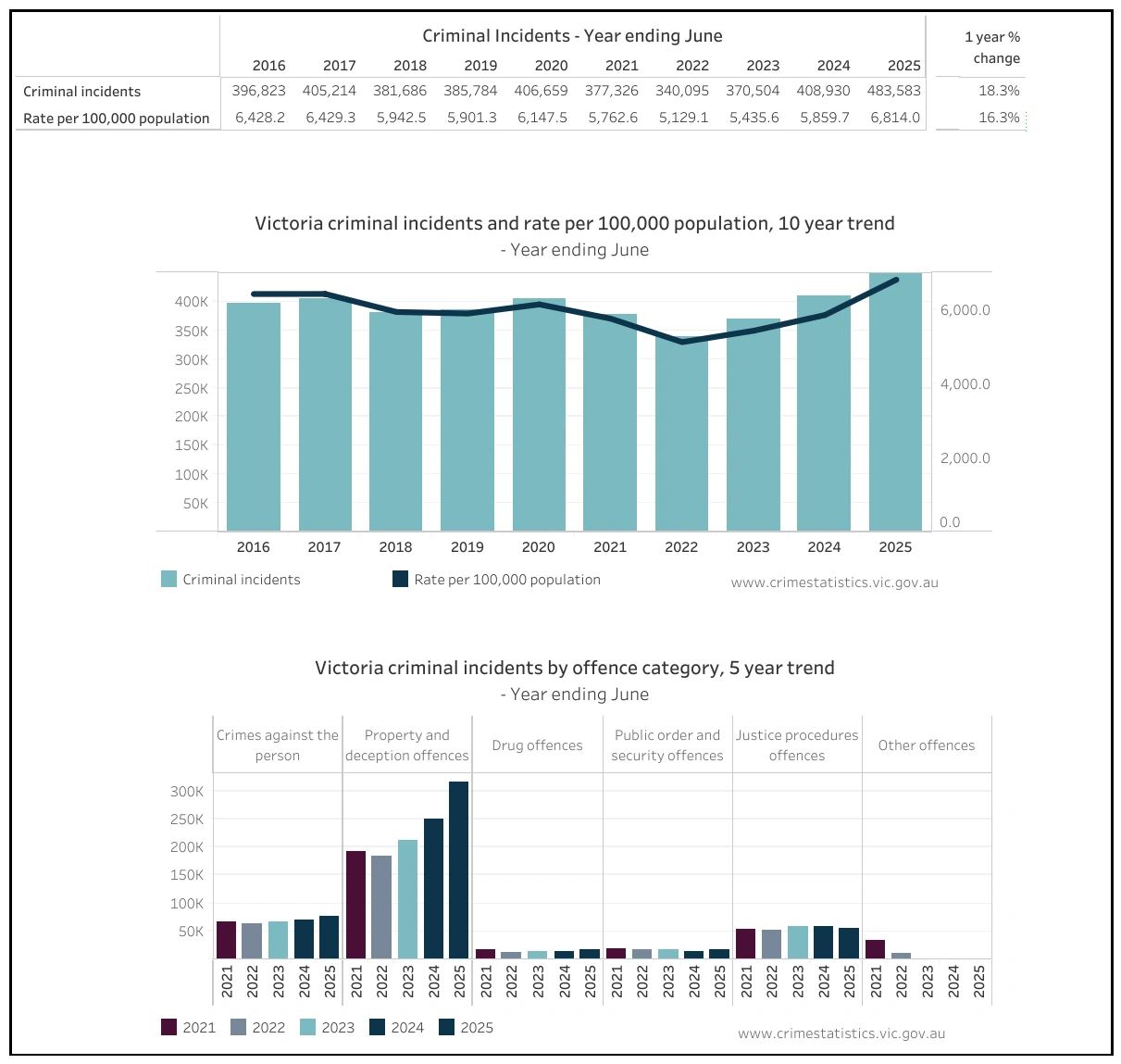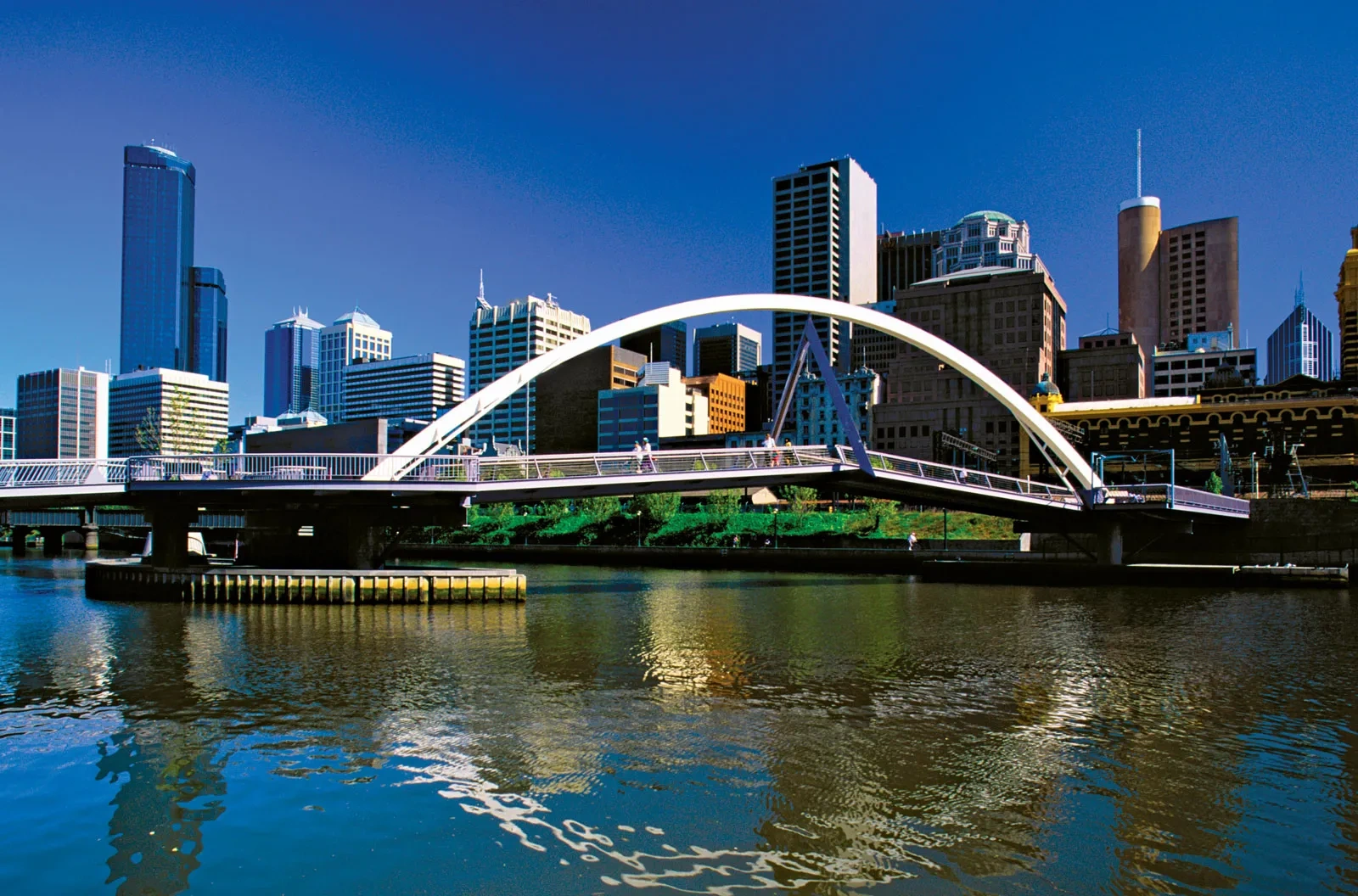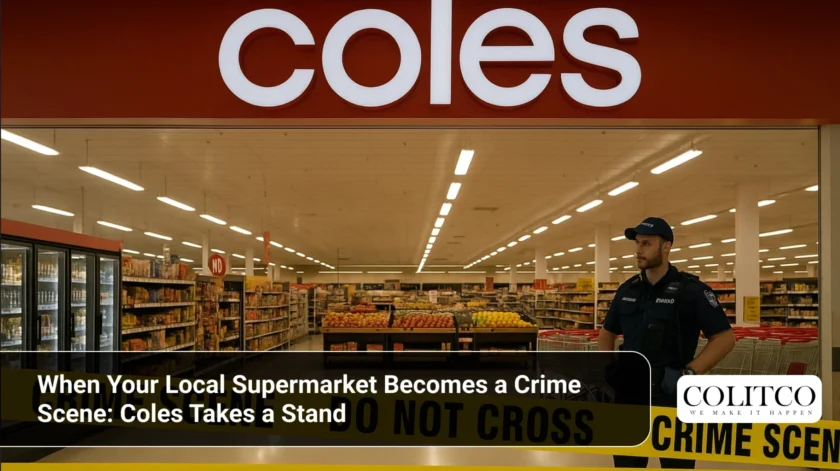Something’s broken in Victoria. When a major supermarket chain starts publicly slamming a state government, you know the situation has spiralled beyond business-as-usual complaints.
Coles has had enough. The retail giant’s Chief of Operations, Matt Swindells, didn’t mince words in his recent radio interview, calling out the Jacinta Allan government for what he sees as an inadequate response to escalating retail crime.
His frustration is backed by hard data. Victoria accounts for a staggering 71 per cent of Coles’ organised crime losses. That’s not a typo. Seven out of every 10 dollars lost to organised retail crime across the entire Coles network happens in one state.
The Revolving Door Justice System
Swindells painted a grim picture of the current reality. “There is no consequence,” he told 3AW Drive. “Someone can come in and steal from a store, be arrested, be taken away and out on bail and back in the store again within hours.”
This isn’t just about stolen groceries anymore. It’s about staff safety, customer security, and a justice system that seems unable to keep pace with brazen criminal behaviour.
The numbers tell a sobering story. According to the Crime Statistics Agency Victoria, criminal incidents jumped 20.1 per cent in the year ending March 2025, with theft offences surging 30 per cent.
 Key movements in the number and rate of criminal incidents
Key movements in the number and rate of criminal incidents
A $100 Million Band-Aid on a Growing Problem
Coles hasn’t been sitting idle. CEO Leah Weckert revealed the company has poured nearly $100 million into crime prevention over two years. The investment includes:
- AI-powered self-checkout monitoring systems
- Automated security gates and trolley locks
- Body cameras for staff in over 350 outlets (mostly in Victoria)
- De-escalation training for frontline workers
- Extended CCTV networks and “bottom of trolley” technology
Yet despite this massive investment, threatening situations continue to escalate. Weckert acknowledged: “Despite all the investments… we are continuing to see increases in threatening situations in store.”
Victoria: The National Outlier
What makes Victoria’s situation particularly alarming is how it stands out nationally. While retail crime exists across Australia, the concentration in Victoria is unprecedented.
Woolworths reported that violent incidents jumped 26 per cent across its 1,100 stores, with Victoria responsible for half that increase. The supermarket giant was forced to implement store lockdowns 45 times in the first half of 2025 alone.
Other retailers echo similar concerns. Super Retail Group flagged that Rebel stores in Victoria were “disproportionately targeted by theft gangs,” while Endeavour Group increased security at Dan Murphy’s and BWS outlets following organised crime activity.
This isn’t just a retail problem anymore. It’s become a barometer of Victoria’s broader law and order challenges, particularly as the state heads toward a 2026 election where crime will dominate debate.

Victoria, State, southeastern Australia
The Human Cost Behind the Statistics
Lost in the financial figures is a more disturbing trend: the psychological toll on retail workers. A national survey of 11,000 retail employees found that more than three-quarters were at high risk of harm from psychosocial hazards.
These aren’t faceless statistics. They’re first-jobbers and retirement-age workers who come to work fearing weapons, aggression, and intimidation. Coles State General Manager Chris McKellar put it bluntly: “We’ve got team members… who deserve to show up to work every day… not having weapons pulled on them.”
Government Response: Too Little, Too Late?
Premier Jacinta Allan has promised new legislation to strengthen penalties for those who attack retail workers. The government has also announced plans for tougher bail laws and a machete ban.
But timing matters. These measures come after sustained pressure from business leaders, including an open letter signed by nearly two dozen retail CEOs demanding “urgent reforms.”
Weckert pointed to South Australia as the “gold standard,” where dedicated police taskforces and legislative changes have led to thousands of charges. She’s calling for Victoria to adopt similar best practices.
The question remains: will these promises translate into meaningful change, or are they election-year optics?
The Broader Implications
Retail crime in Victoria has moved beyond shoplifting into organised criminal networks. Victorian Police recently arrested 19 people linked to a syndicate accused of stealing over $10 million in goods.
This mirrors global trends where mining and critical minerals sectors face supply chain vulnerabilities. Just as Australia’s mining industry pushes for reforms to maintain competitiveness, retail businesses now demand government action to protect their operations.
The parallels are striking. Both sectors generate significant economic value, employ thousands of Australians, and face challenges requiring coordinated government response.
What Needs to Change
Retailers are calling for specific reforms:
- Workplace protection orders (currently only available in ACT)
- Dedicated retail crime police taskforce
- Online crime reporting platform
- Consistent legal frameworks across states
- Tougher penalties that actually deter repeat offenders
The New Zealand model offers encouragement. A coordinated police-retail initiative led to a 34 per cent drop in ram-raid offences within a year. Australia could achieve similar results with proper coordination.
The Bottom Line
Victoria’s retail crime crisis represents a failure of policy, enforcement, and political will. When a major employer invests $100 million in security and still sees conditions worsen, the problem extends far beyond business operations.
The Allan government faces a critical test. Public surveys show 79 per cent of Victorians are concerned about rising crime levels, and 78 per cent want the state government to do more.
For Coles and other retailers, the patience has worn thin. They’re not asking for special treatment. They’re demanding what should be fundamental: safe workplaces, effective law enforcement, and consequences for criminal behaviour.
The question for Premier Allan is simple: will Victoria’s government act with the urgency this crisis demands, or will retailers and their staff continue bearing the cost of inadequate policy?
The answer will likely determine more than just retail security. It may shape the outcome of the next state election.
Also Read: Trump Puts Nigeria Back on Religious Freedom Watchlist Amid Christian Persecution Claims
FAQs:
Q: What percentage of Coles’ organised crime losses occur in Victoria?
A: Victoria accounts for 71 per cent of Coles’ organised crime losses across its entire Australian network.
Q: What security measures has Coles implemented?
A: Coles has invested $100 million in AI-powered self-checkout monitoring, security gates, trolley locks, body cameras for staff, and de-escalation training.
Q: How much has retail theft increased in Victoria?
A: Theft offences in Victoria increased by 30 per cent in the year ending March 2025, reaching 3,384 offences per 100,000 population.
Q: What is the Allan government doing about retail crime?
A: Premier Jacinta Allan has promised new legislation to strengthen penalties for attacks on retail workers and plans to introduce tougher bail laws.
Q: Are other retailers experiencing similar problems in Victoria?
A: Yes. Woolworths, Super Retail Group, and Endeavour Group have all reported Victoria as a hotspot for retail crime, with disproportionately high incident rates.












